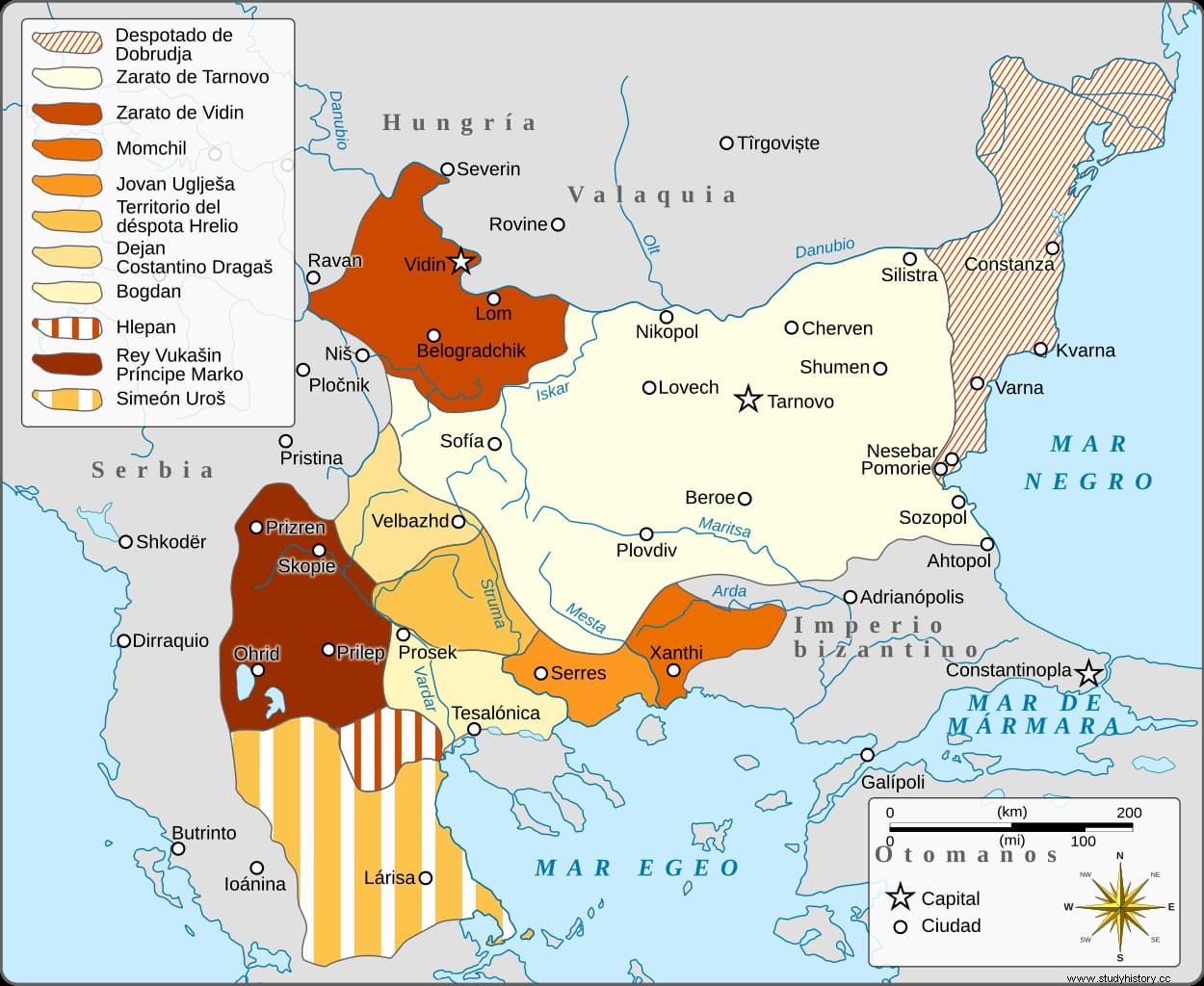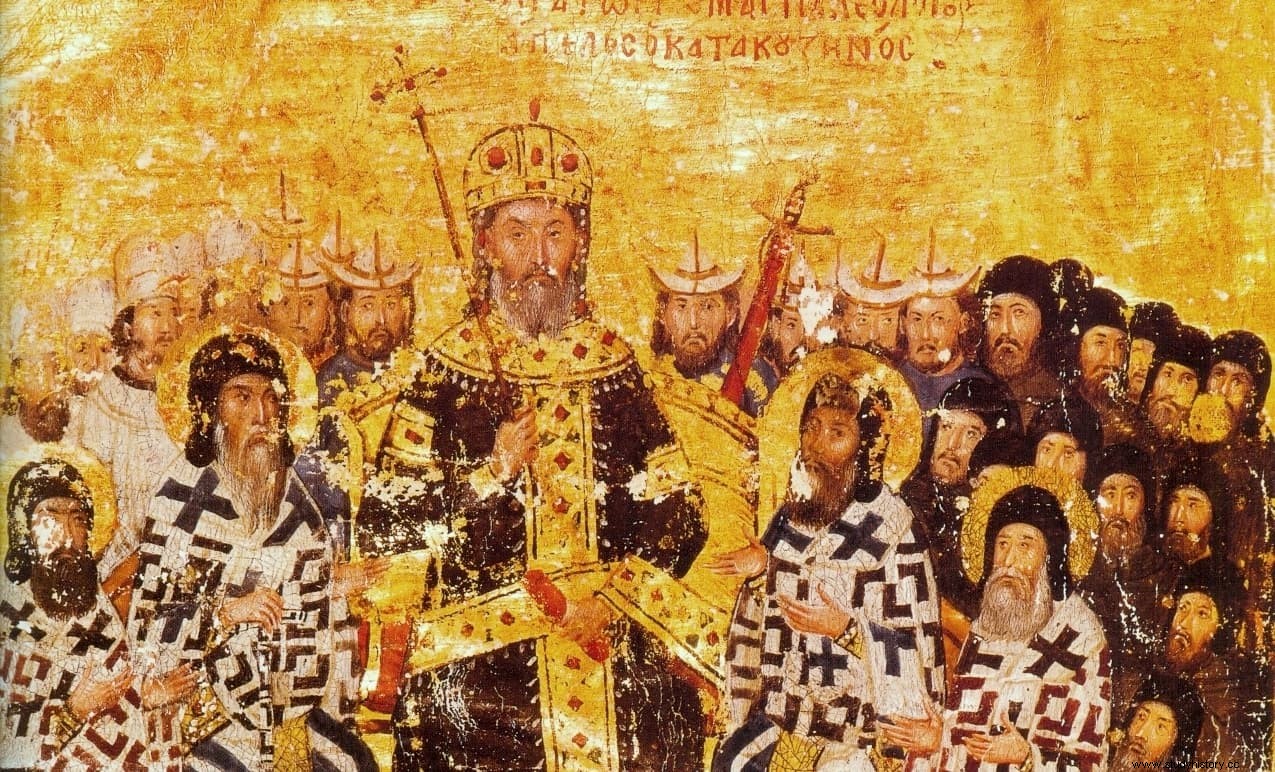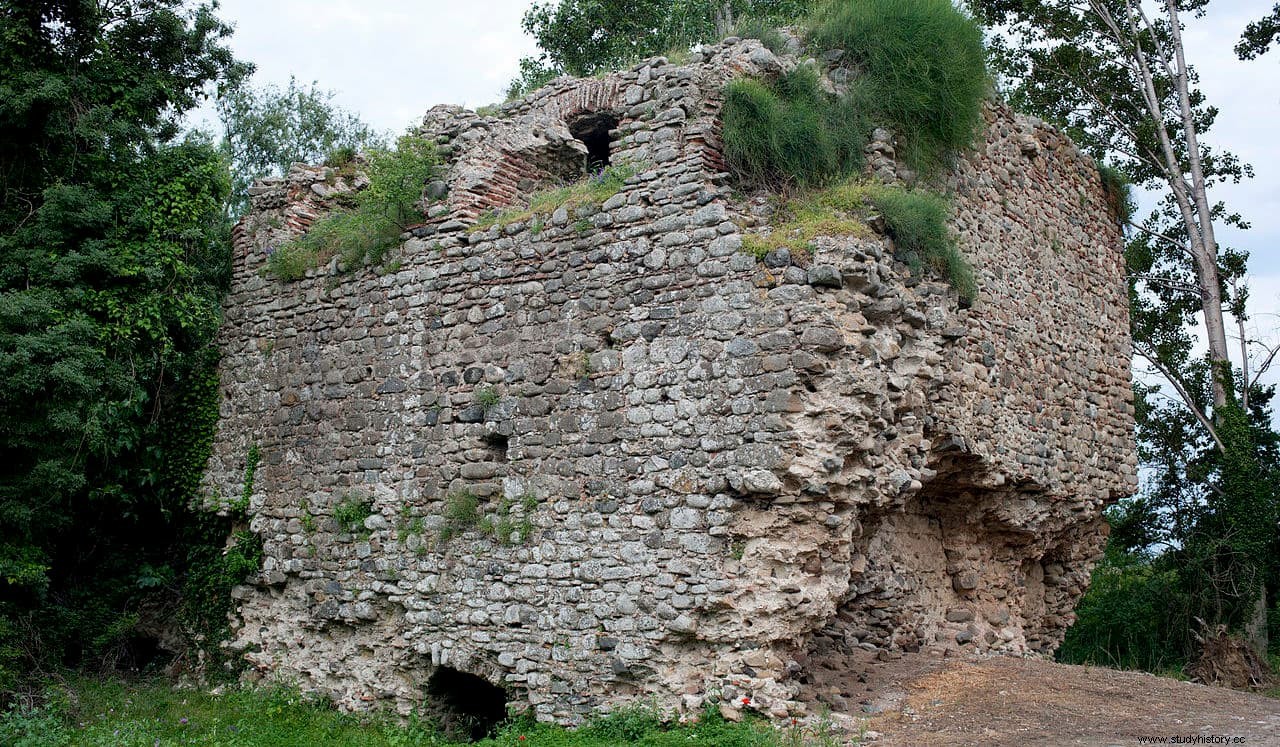Robert E. Howard narrated that his best-known character, Conan the barbarian, began as a bandit and after fighting a thousand battles and living no fewer adventures, he became king on his own merits.
But that model of experience, climbing the social hierarchy by struggling through mud and blood until reaching the top in the shape of a crown, was not the exclusive product of the writer's imagination; History shows us some similar real cases and one of them was that of Momchil , the epic hero of Bulgaria.
Momchil is the protagonist of several stories of traditional Slavic folklore , a kind of Cid or Roldán tireless in his fight against the Turks, who only dies for a betrayal and whose deeds have been reproduced in various artistic manifestations even today (books, operas, etc). A character closely linked to the historical articulation of Bulgaria to the point of giving its name to more than one locality and which starred in one of the most curious episodes of the Byzantine Civil War -also called the Second Palaeologus Civil War- in the mid-14th century.

In 1341 the emperor Andronicus III Palaiologos died. , a man who had spent his life trying to stop the unstoppable Ottoman advance westward. Like his son Juan was only nine years old, a serious conflict broke out to seize power in which the middle and lower classes maintained their loyalty to the regents (the widow Ana de Saboya and the Duke Alejo Apocaucos) while the nobility opted for the minister John Kantakouzeno.
This division extended to the religious level, since Cantuceno was supported by the hesychasts (an ascetic doctrine promoted by hermit monks) against the orthodoxy of the patriarch Juan Kalekas, who was on the side of the throne. The minister tried to carry out a coup and proclaim himself emperor but the others did not give in and the civil war broke out. .
In the midst of this chaos, aggravated by an outbreak of the Black Death, the Turks took the opportunity to resume their expansion but so did the Serbs (who stayed with what is now Albania, the Epirus region and a good part of Macedonia) and the Bulgarians (which occupied the northern part of the Evros river).
And that's also when Momchil appears, a charismatic haiduque (bandit) who knew how to take advantage of that border instability to rob and loot on both sides with certain security, leading a group important enough -two thousand men- to hire their services as mercenaries .

Before dying, Andronicus hadhired Momchil and his people to paradoxically protect the region they had been ravaging (Merope, a mountainous plug between Greece and Bulgaria), a good example of the old saying If you can't beat your enemy join him . Protecting is a saying because the bandits continued to despoil the place to the point that if the Bulgarians hated him, the Byzantines on the border were not very satisfied either, so Momchil changed his lord and went on to serve the Serbian king Stephen Uroš IV Dušan . It was then, during that stay in Serbia, that he met John Kantakouzenos, who planned to seize the Byzantine throne from there; both agreed to collaborate.
Indeed, the outbreak of the aforementioned Byzantine civil war led Momchil, already with several thousand troops between infantry and cavalry, to participate on the side of the applicant in exchange for Merope's rule. However, the fidelity of a mercenary is always fickle and is offered to the highest bidder, so it is not surprising that in 1344 he changed sides to the ranks of the young heir; presumably they offered him more than considerable emoluments.
The fact is that under the orders of Juan V he defeated the Turks over and over again to later confront his former lord and defeat him as well. Kantakouzenos must have understood then that it was not good to have that former bandit as an enemy and managed to attract him again, granting him the position of sebastocrator (a kind of governor), a curious thing because Momchil, in a display, played both sides and wrested from the other party the appointment of despot (which was not a derogatory word like now but a title equivalent to the Latin dominus , that is, sir, which in a certain way related him to the royal family).
The power that Monchil accumulated was such that finally, in the second half of 1344, he decided to work on his own, reigning de facto about Merope and the Greek coast of the Aegean, establishing his capital in the recently conquered city of Xánthi. A real provocation for Byzantium, which the following year sent an army to subdue him.

It was a powerful force, composed of twenty thousand soldiers , part of them Byzantine and another part Turkish of the beylicato from Aydin (Asia Minor) under the command of the allied Ottoman general Umur Beg , before which Momchil, with only five thousand infantry and three hundred horsemen , could not face in the open field. Therefore he decided to stop the enemy through a defensive tactic, entrenching himself in the city of Periteorion; However, they denied him entry for fear of subsequent reprisals, so he had no choice but to hide in some ruins outside the walls.
It was useless. The combat took place on July 7, 1345 and the Bulgarian cavalry were massacred by the Byzantine-Turkish archers, who then sent their horsemen to finish the job. Momchil was killed during the melee, weapon in hand, and Kantakouzenos, who spared his wife's life, regained control of Merope. He would not keep him for long because although two years later he signed an agreement by which he would govern together with John V Palaiologos for a decade to then leave him alone (when he was an adult), he broke the pact to try to bequeath the throne to his son and finally, in 1354, he was forced to abdicate .
Kantakouzenos abandoned political life to become a monk on Mount Athos while the Ottomans tightened their grip on the Balkans and Momchil became a Bulgarian national legend .
